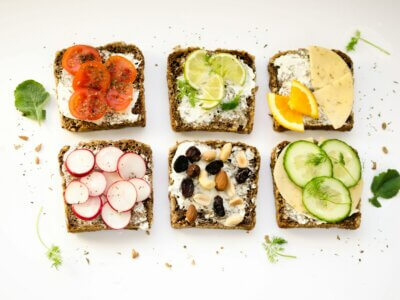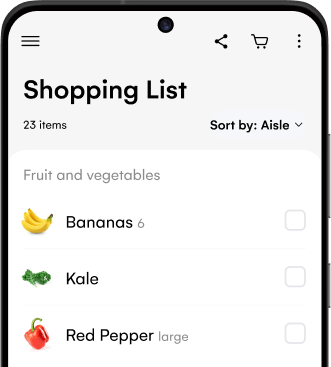Estimated reading time: 6 minutes
You can have sugar and spice and all things nice while also reaping the health benefits of cutting back on refined sugar. Over the decades, sugar has transitioned from a luxury item for special occasions to a daily essential. This development comes with a health cost.
Analyse nutritional information for any recipe

It’s commonplace to grab a sugary drink or chocolate bar to provide a quick energy boost. Or to finish off a satisfying dinner with ice cream. And that’s fine from time to time. But this pattern of behavior, if repeated regularly, can lead to serious health issues.
Brace yourself for a sugar crash. Now’s a great time to reevaluate your refined sugar intake and learn about the health benefits of reducing refined sugar.

What is refined sugar?
Refined sugar comes from plant sources: sugar cane and beet. A liquid is extracted from these plants. Through processes including harvesting, cooking, and breaking down, it’s turned into sugar crystals.
High fructose corn syrup (HFCS) is a type of refined sugar made from corn.
Refined sugar is available for purchase as granules or syrup. It’s helpful to have the choice to add it to foods, but the challenging aspect is that refined sugar is often automatically added to many household grocery items.
Well-known foods with high refined sugar content include:
- Candy.
- Cakes.
- Donuts and sweet rolls.
- Soda.
- Desserts.
They’re easy enough to avoid. But there are also foods with high levels of refined sugar “hidden” in the ingredients. Did you know your standard tomato ketchup has 1 teaspoon of sugar per tablespoon? And that you can also often find sugar in bread, salad dressings, and reduced fat spreads or condiments?
That’s the sneaky thing about refined sugar; it gets into everything.
Why is refined sugar bad for you?
So what’s the big deal? Refined sugars are empty calories as they have no nutritional value. The average American consumes up to 34 teaspoons of sugar per day! Manufacturers add sugar to everyday foods to enhance flavor and make them more appealing to the consumer. Sugar also has preservation qualities and is frequently added to highly processed foods.
Sugar started as a luxury for the rich and quickly became necessary for all households.
Think about your refined sugar habit. Does your consumption of sugar exceed the recommended daily allowance? The World Health Organisation recommends that the total daily calorie intake should be no more than 10% sugar; this equates to 12 teaspoons per day for adults.
It seems unfair that something that tastes so good is bad for you. But how bad is it?
Consumption of added refined sugar is associated with an increased risk of:
- Obesity, including excess belly fat.
- Cardiovascular disease.
- Diabetes
- Non-alcoholic fatty liver disease.
- Cognitive decline.
- Some cancers.
Is refined sugar worth the risk?
How to break your refined sugar habit
Luckily, you have options. And the good news is that when you cut back on refined sugar, you may see a difference in your fat storage and weight within a few weeks.
You can boost your health and cut back on refined sugar with these four tips.

1. Stop adding sugar to tea and coffee
If you take sugar in your tea and coffee, this is a quick win opportunity to reduce your sugar intake. That said, your palate is familiar with your old sugary habits, so it may take some time to get used to the new flavors. You can always gradually reduce the sugar rather than cutting it out all at once.
Sugar alternatives such as sweeteners are a helpful way to wean yourself off refined sugar. But it’ best to use these alternatives as a temporary measure to help ease you off sugar entirely.
See if you can cut out the sugar entirely. If you need to add a sweetener for a couple of weeks or months while transitioning, go for it. But the end goal is no sugar or sweetener of any sort.
Install free Chrome extension for easy recipe saving

2. Get your sugar from natural sources
It’s not so much that all sugars are harmful, but refined sugar brings no nutrients to the table. Natural sugars found in fruit offer vitamins, minerals, antioxidants, and fiber. Plus, they’re usually more filling too.
So if you are looking for an afternoon snack, how about swapping out your chocolate bar and sugary drink for a handful of nuts, dried fruit, and a glass of water. Your mind and body will thank you for this trade-off—a boost in energy without the sugar slump.
Some of your best sources of natural sugars are:
- Fresh or frozen fruit (fructose).
- Dairy (lactose).
- Vegetables (sucrose and glucose).

3. Read the ingredient list of groceries
Make it your duty to know what you are putting into your body. This responsibility means reading ingredient lists as if they were your favorite novel.
Pay attention to the sneaky sugar levels of your packaged goods and sauces, and consider the low-sugar options.
Surprising items that frequently have high added sugar content include:
- Cereals.
- Low-fat foods.
- Fruit juice.
- Tinned soups.
- Sauces.
- Tinned beans.
- Canned fruit.
Reading labels can be a laborious task initially, as there are 56 names for sugar! But rest assured, your efforts will pay off. Once you find suitable staples for your larder, you are over the biggest obstacle.
4. Find a weekly balance
In a study into sugar consumption by non-dieting women, the authors suggested an effective way to cut back on refined sugar is to focus on restricting sugar throughout the week and controlling sugar intake at weekends.
This strategy allows for some sugar consumption at weekends without demonizing treats. The suggested method of sugar consumption returns to a time when sugar was considered more of a luxury or a treat and less of a daily essential. This sugar consumption habit is a positive balance that helps maintain a healthy lifestyle.
This is similar to the 80/20 rule of healthy eating, which many people find helpful in allowing some freedom while also sticking to a balanced and healthy diet.

You don’t need refined sugar to keep sweet
Food can still be enjoyable when you cut back on refined sugars. Healthier habits can help you build a more mindful relationship with food.
If simple, refined sugar habit changes can help you lose abdominal fat and reduce your risk of various diseases, what are you waiting for?
Words by Ali Hall



